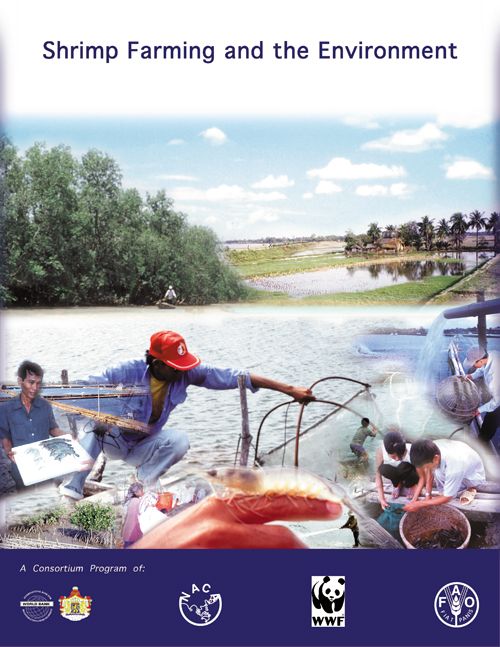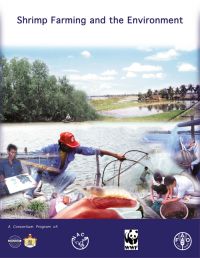Shrimp Farming and the Environment: Can Shrimp Farming be Undertaken Sustainably?
11 December 2003 | Erik Hempel, Ulf Winther and John Hambrey | 27108 Downloads | .pdf | 632.13 KB | Governance and Policy, Livelihoods, gender and social issues, Shrimp, Environment and Sustainability
There has been much controversy in recent years about the sustainability of shrimp farming. This study was therefore commissioned to analyse and discuss these issues objectively, with a goal of developing some preliminary guidance for the World Bank and other multilateral and bilateral agencies in addressing issues and opportunities related to the development of shrimp farming.
The present study, constituting Phase I of a larger study, identifies problem areas, good practices, and minimal requirements for environmentally safe and sustainable shrimp farming. Proposed activities for Phase II, some of them now under way, are presented in Chapter 8. Case studies undertaken by the consortium (World Bank, Network of Aquaculture Centres in Asia, World Wildlife Fund, and Food and Agriculture Organization of the United Nations) are presented in Annex 4. Discussion of the approach and dissemination of the results have been presented to a number of different stakeholders, as presented in Annex 5.
This report is intended primarily as a discussion paper, to serve as the basis for informed dialogue and policy development to encourage more detailed guidelines following further study and consultation. It seeks, in particular, to answer three commonly posed questions: Is sustainable shrimp farming possible? Can poor coastal communities benefit from it? And, if so, what role can agencies like the World Bank play to ensure that basic minimal requirements to achieve this are met?
This document was originally prepared for the World Bank by KPMG Center for Aquaculture and Fisheries (by Erik Hempel and Ulf Winther) and subsequently revised by John Hambrey (of the Asian Institute of Technology and Econeco), in close collaboration with the World Bank.
Copyright, all rights reserved.

